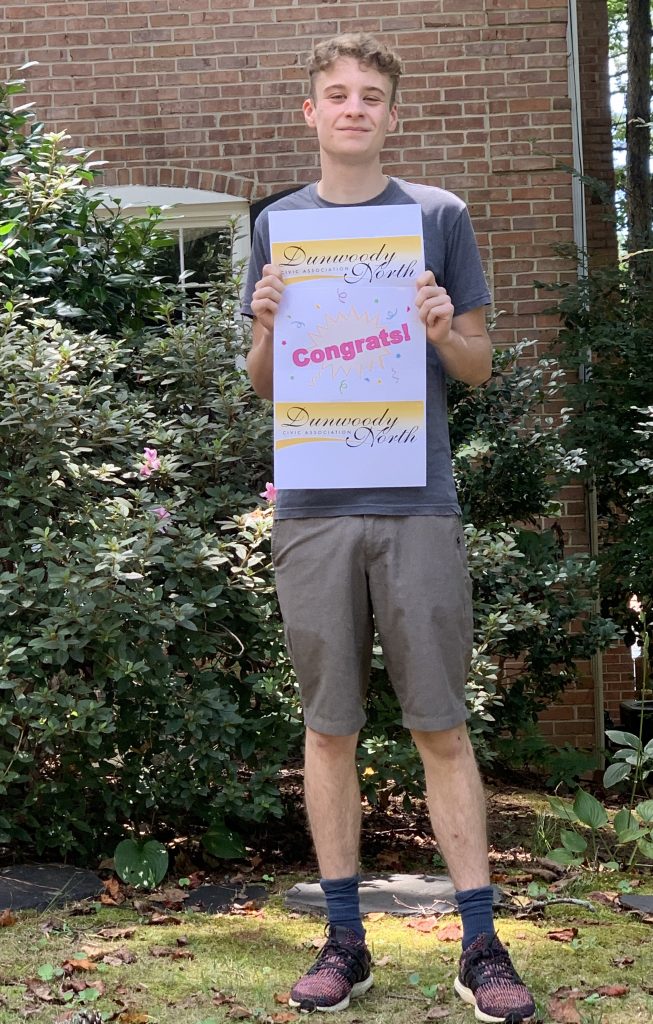For 2020, the DNCA scholarship team received multiple great essays. Ben Alterman was selected as the $1,000.00 winner. His full essay is a bit further down in this story. With so many essays, selecting a winner was a difficult decision. While Ben was finally put on top, the essay by Annie Sheran was very close so again a runner up was selected.

Lyn Coltman and Gerri Penn co-chair this activity that will continue in 2021 so if you know a rising senior, watch out for our notifications. If you have questions or need additional information, get in touch via our contact form and select 'DNCA Scholarship' from the recipient drop down list.
And remember, this scholarship is just one of the many things DNCA does with the support of your $20 membership dues. If you have not registered, get more info here.
2020 Essay Question: What is the contribution you would like to make?

I am extremely excited to have accepted my offer to study Geography at the University of Bristol in the UK. In this increasingly fragile, rapidly changing environment, understanding the interplay between earth’s physical features and human activity is critical. Geographers understand such interactions and I plan to help mitigate the growing issues of global warming and overpopulation. Studying geography at the world-renowned University of Bristol will allow me to engage with the contemporary issues that excite and motivate me; from the spread of novel contagions to “water wars” between nations. I’ve been fascinated by one such water conflict between our home state of Georgia and the states of Alabama and Florida, where the growing population of metro Atlanta has caused problems for the downstream states regarding supply. I intend to go into Environmental Management as a way to directly help manage these issues. The tools provided by Bristol’s multi-faceted and holistic geography program will uniquely prepare me to develop solutions to complex matters such as these.
Environmental conservation has been a passion of mine throughout my high school years. Through Duke University’s Talent Identification Program, I worked in cooperation with biologists at the La Selva Biological Station in Costa Rica to determine the rate at which middle elevation forests are ascending upwards due to localized warming. During my time at La Selva, extremely heavy, unseasonal rainfall prompted a boat evacuation as the roads were submerged. I experienced firsthand the threat of extreme weather events, which, according to a recent NASA study, will serve to polarize environments, making arid areas even drier, and vice-versa. As a geographer, I plan to aid in the prediction and mitigation of floods and desertification.
My studies on the threats of climate change and invasive species have spurred me to take action closer to home. Yale University’s School of Forestry and Environmental Studies’ research details the dangers of the Woolly Adelgid, an invasive insect, to hemlock trees in Georgia. According to the study, the insect is spreading southward at 15.6 km/yr. To combat the problem, I volunteer at the Hemlock Conservatory in north Georgia, treating hemlock trees’ roots with a chemical compound, halting the insect’s devastation. This incident is indicative of globalization’s negative side, as the Adelgid was introduced from Japan.
Growing up in a community with a strong sense of identity and spirit like Dunwoody has been a huge factor in contributing to my sense of purpose. Even this week, Dunwoody North is honoring the seniors with a parade around the neighborhood. The support that I’ve received from around the community in achieving my goals has been overwhelming. I look forward to being able to bring my passion for environmental preservation back to Dunwoody after finishing college.

